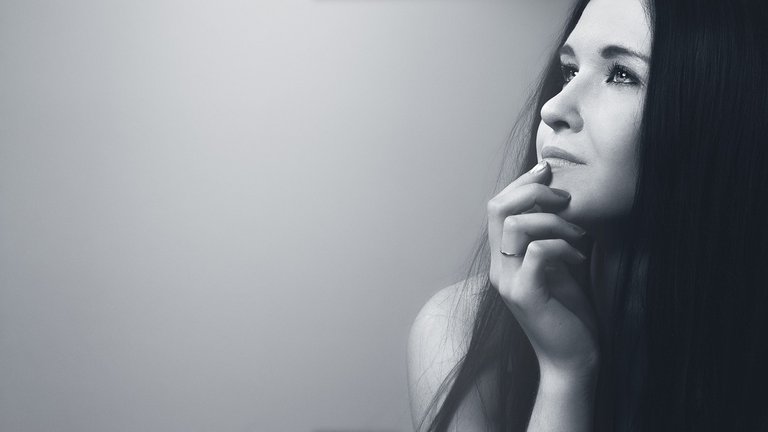Judging without knowing / Juzgando sin saber (eng-esp)
Hello, friends!
Near the end of the novel "Alice's Adventures in Wonderland," Lewis Carroll puts a contradiction in the mouth of the impatient queen that makes us laugh. "The sentence comes first, the trial will come later."
But soon, reason comes to remind us of those cases where people were already condemned beforehand and the trials were just theater, and then, to annoy us even more, the times we've reached a definitive conclusion without appeal without a second thought.
If these conclusions are positive, then there is a potential danger of disillusionment. If they are negative, it is even worse, since we destroy something, in our opinion, perhaps without building anything in its place.
Forming a prior idea about things is instinctive and very useful, as it will be the starting point from which that idea can evolve with new information and the reasoning we do with it to recover the lost pieces or put together the whole that makes sense of the parts.
Just as one shouldn't expect a person's appearance to remain unchanged over time, one shouldn't assume that what they say once is what they believed or will always believe.
However, the usefulness of a preconceived idea becomes a double-edged sword when we combine it with intellectual laziness—taking something we hear and not bothering to validate it with new information that might modify it.
We can even fall into the error of seeking arguments, but only to reinforce, even if they aren't very credible, a kind of selective thinking. To remain in a preconceived notion is to destroy or refuse to build anything else in that garden.
A solitary flower surrounded by motionless statues, or silent flowerbeds.
Even when judging—and here I'm referring to its correct meaning, since many use the word "judge" as a synonym for "rule"—we shouldn't think only of ourselves, but put ourselves in the shoes of others when it comes to something that is partly subjective, such as how we value a person, or the quality of something we read or hear.
If we only consider our point of view, we might view a decision made because it better suits the needs or tastes of a group of people, or because there were no other viable or known alternatives in that situation, as foolish, irresponsible, or pretentious.
Many changes we try to make in our lives, in the lives of others, or that others try to impose on us, end up with no results or with harmful consequences simply because we have misjudged the people and situations for which those changes were intended.
We've imagined an ideal situation without counterweights where a perceived problem is solved, and reality is in charge of judging our errors of judgment and action in practice. But at that point, the error in thinking, which had no consequences, becomes an error in reality, which can waste our time at the very least, and from which, with a lot of luck, we could learn something.
Every attitude or action we have responds to a need, although sometimes we are not clear about what it is.
If we understand that judging is necessary, so that the information we receive isn't chaotic and we can decide how best to proceed, which is to best meet our needs, then with that information, we must judge as best we can.
Let's not think that forming an opinion about something that doesn't directly affect us is harmless. The streams of information that govern us converge and mix in the same place. What's foreign could well serve as an example for what's to come.
En español
Hola, amigos!
Cerca del final de la novela “Las aventuras de Alicia en el país de las maravillas” Lewis Carrol pone en boca de la reina impaciente un contrasentido que nos hace reír. “La sentencia es lo primero, el juicio vendrá después”.
Pero pronto, viene la razón a recordarnos esos casos donde las personas ya estaban condenadas de antemano y los juicios eran teatro, y después, para molestarnos todavía más, las veces que hemos llegado a una conclusión definitiva y sin apelaciones sin pensarlo dos veces.
Si esas conclusiones son positivas, pues hay un peligro potencial en el desengaño. Si son negativos, es todavía peor, ya que destruimos algo, en nuestra consideración, puede que para no construir nada en su lugar.
Hacerse una idea previa de las cosas es algo instintivo, y muy útil, ya que ese será el punto de partida a partir del que esa idea podrá ir evolucionando con la nueva información y los razonamientos que hagamos con ella para recuperar las piezas perdidas o armar el todo que dé sentido a las partes.
Igual que uno no debe esperar que una persona no cambie de aspecto con el paso del tiempo, tampoco debería considerar que lo que dice una vez es lo que creyó o creerá siempre.
Sin embargo, la utilidad de la idea previa se vuelve un arma de doble filo cuando la unimos con la vagancia intelectual, el tomar algo que escuchamos y no molestarnos en irlo validando con nueva información que lo pueda ir modificando.
Podemos incluso caer en el error de buscar argumentos, pero solo para reforzar, aunque no sean muy creíbles, una especie de pensamiento selectivo. Quedarnos en una idea previa es destruir o negarse a construir nada más en ese jardín.
Una flor solitaria rodeada de estatuas inmóviles, o canteros mudos.
Incluso para juzgar, y aquí me refiero a su acepción correcta, ya que muchos emplean la palabra juzgar como sinónimo de dictaminar, no debemos pensar solo en nosotros, sino ponernos en lugar de los demás cuando se trata de algo que es en parte subjetivo, como la forma en que valoramos una persona, o la calidad de algo que leemos o escuchamos.
Si solo consideramos nuestro punto de vista, podríamos ver como algo tonto, irresponsable o pretencioso una decisión que se tomó porque se adapta más a las necesidades o gustos de un grupo de personas, o no había otras alternativas viables o conocidas en esa situación.
Muchos cambios que tratamos de hacer en nuestra vida, en la de los demás, o que otros tratan de imponernos, terminan sin resultados o con consecuencias dañinas solo porque hemos juzgado mal a las personas y las situaciones para las que se pensaron esos cambios.
Nos hemos imaginado una situación ideal sin contrapesos donde se resuelve un problema que percibimos, y la realidad es la encargada de juzgar en la práctica nuestros errores de apreciación y acción, pero ya ahí el error de pensamiento, que no tenía consecuencias, pasa a convertirse en un error en la realidad, que lo menos que puede hacernos perder es tiempo, y del que, con mucha suerte, podríamos sacar alguna enseñanza.
Cada actitud o acción que tenemos responde a una necesidad, aunque a veces no tengamos claro cuál sea.
Si entendemos que juzgar es necesario, para que la información que recibimos no sea un caos y podamos decidir como proceder mejor, que es resolver mejor nuestras necesidades, con esa información, debemos pues juzgar como mejor podamos hacerlo.
No creamos que hacernos una idea de algo que no nos afecta directamente es inocuo. Las corrientes de información que nos gobiernan confluyen y se mezclan en el mismo lugar. Lo ajeno bien pudiera servir de ejemplo a lo por venir.



¡Felicidades! Esta publicación obtuvo upvote y fue compartido por @la-colmena, un proyecto de Curación Manual para la comunidad hispana de Hive que cuenta con el respaldo de @curie.
Si te gusta el trabajo que hacemos, te invitamos a darle tu voto a este comentario y a votar como testigo por La Colmena.
Si quieres saber más sobre nuestro proyecto, te invitamos a acompañarnos en nuestro servidor de Discord.
Congratulations @iamberenice! You have completed the following achievement on the Hive blockchain And have been rewarded with New badge(s)
Your next target is to reach 4250 upvotes.
You can view your badges on your board and compare yourself to others in the Ranking
If you no longer want to receive notifications, reply to this comment with the word
STOPCheck out our last posts: